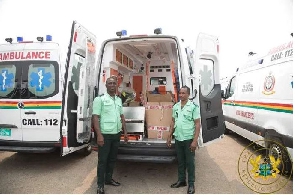Emergency Medical Technicians (EMTs) are healthcare professionals who provide immediate medical care to individuals who are critically ill or injured. They are often the first responders at the scene of accidents, medical emergencies, or disaster situations, and their work involves high levels of physical and emotional stress.
Due to the nature of their job and the risks they face regularly, EMTs should be
entitled to risk allowances, which compensate them for the hazards and challenges they encounter in their line of duty.
One of the primary reasons why EMTs should be given risk allowances is the physical danger they face on a daily basis.
These professionals regularly respond to emergencies that involve hazardous situations such as car accidents, fires, and violent crimes.
They often have to work in chaotic environments, where they may be exposed to chemical spills, collapsing structures, or active violence. EMTs must navigate
through these dangerous conditions while providing essential medical care to patients.
Risk allowances would acknowledge and compensate these individuals for putting their lives at risk to save others.
In addition to physical risks, EMTs also face significant emotional stress while performing their duties. They witness traumatic events and deal with life-threatening situations, which can take a toll on their mental wellbeing.
They are frequently exposed to distressing scenes, such as severe injuries, deaths, and the emotional reactions of patients and their family members. This emotional burden can lead to long-term psychological effects, including post-traumatic stress disorder (PTSD).
By providing risk allowances, EMTs can access and afford necessary mental health services to cope with the emotional challenges associated with their profession.
Furthermore, EMTs often work long hours and irregular shifts, which disrupt their sleep patterns and cause fatigue. Fatigue can impair decision-making abilities, decrease attentiveness, and increase the risk of accidents.
Given the critical role EMTs play in emergency situations, risk allowances would enable them to have better work-life balance by compensating for the physical and mental toll of their irregular schedules.
It would also allow them to access fatigue management programs and restorative rest facilities, ensuring they can provide optimal care to patients while minimizing the chances of medical errors due to fatigue-related issues.
The provision of risk allowances can also incentivize EMTs to stay in their profession and attract new talent. Despite the critical importance of their work, EMTs often face comparatively low wages and challenging working conditions.
Many EMTs hold multiple jobs to make ends meet, which can lead to burnout and a high turnover rate in the industry. By recognizing the risks and challenges they face through risk allowances, EMTs are more likely to feel valued and motivated to continue serving their communities. This will, in turn, improve the overall quality of emergency medical services provided to
the public.
In conclusion, Emergency Medical Technicians play a vital role in saving lives and providing immediate medical care in emergencies. Due to the physical danger, emotional stress, and irregular working hours they face, EMTs should be entitled to risk allowances.
These allowances would compensate them for the hazards associated with their profession, support their mental wellbeing, enable access to fatigue management programs, and help retain dedicated professionals in the field. By recognizing the risks
EMTs undertake to serve their communities, risk allowances contribute to maintaining high-quality emergency medical services and ensuring the welfare of those who tirelessly care for others in times of need.
By SEMT Ebenezer Andoh-Acquah
(Ayawaso North , Ambulance Station)
Opinions of Monday, 26 June 2023
Columnist: Ebenezer Andoh-Acquah















